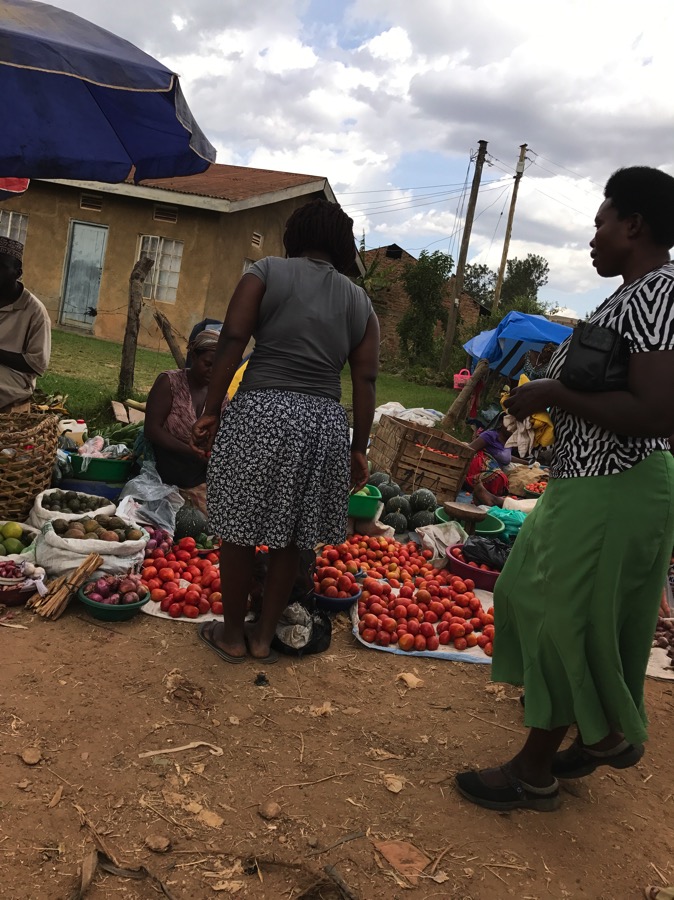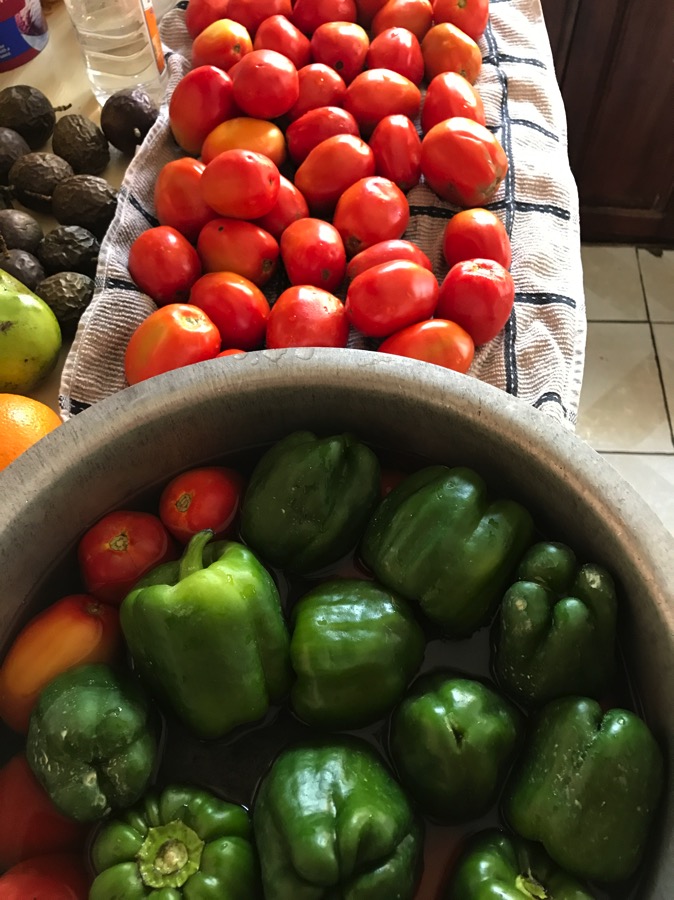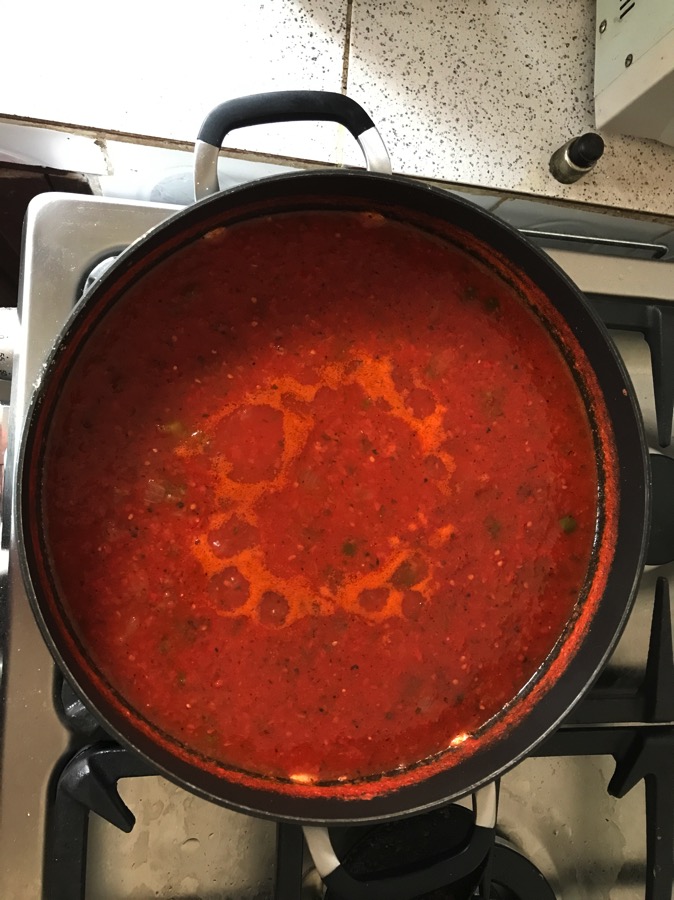Pizza! (Part 2.1)
Months ago, I posted about pizza crust. I promised I would follow up with how to make our homemade sauce. Afterward, it occurred to me that, in order to properly post about the sauce, I would need to be back in Africa so you, dear reader, could get the full effect of our process for getting sauce.
Pizza sauce for us is more than just a delicious recipe, though that is an important part of it. It’s also about the acquisition of the ingredients, the proper processing thereof, and then cooking it all until it tastes just right.
Years ago, when my kids were small and I’d make homemade pizza, I’d just buy sauce at the grocery store. I wasn’t convinced that homemade sauce could taste as good as store-bought.
Then we moved to Uganda. An 8-oz. jar of pasta sauce cost almost $10 and I knew we’d need at least two of them to make pizza for our family if I skimped on sauce. At first I “cheated” and used tomato paste and herbs to make a sort of sauce that we used for pizza sauce. It was cheaper than using the ready made pasta sauce but it was easier than making sauce from scratch. The canned tomato paste here has a strong metallic flavor. The more I used that method for sauce, the less I liked the flavor of the sauce and the more I could taste the metal.
So I pulled out my trusty family cookbook — a treasure that was given to me as a wedding present, with recipes from family and friends all over the world (It’s my go-to recipe book for almost everything). Inside, I found a pasta sauce recipe given to me by Sandy Panagos, a dear friend who’d been almost like a second mother when I was growing up. Years ago, I insisted that her sauce had come out of a bottle and she insisted it didn’t. One day, when we were doing school at her house (that tells you how long ago it was!), she made her signature sauce. I still could hardly believe that something that tasted that good didn’t come out of a bottle. (Oh! how naive I was!) She included the recipe for me in the family cookbook.
Yes, her recipe includes cans of processed tomatoes. I can get canned tomatoes here in Uganda, but one can costs as much as enough fresh tomatoes to make quadruple her recipe. So I use fresh tomatoes instead of canned.
It starts like this:
I go to the Wednesday market to buy produce and buy a large basin of tomatoes. They cost anywhere from $3-5 depending on the season. (The large basin holds around 20 pounds of tomatoes.)

(You can see a large basin of tomatoes to the right in the above picture.)
I then bring them home and wash them. We sterilize all our produce in our drinking water and disinfectant. It’s a long, drawn-out process. Honestly, I don’t miss this step when we visit the US — where you can wash your produce in tap water and don’t have to worry about getting intestinal parasites or e-coli from it. The wash water from our produce here turns brown and has a layer of dirt in the bottom of the pan, so I’m happy to do this step in the process.

Once that step is finished, I can refrigerate the produce until I’m ready to make the sauce.
I know most books about preserving vegetables say you must peel and seed your tomatoes. The skin and seeds change the flavor, especially if you are canning them. I’m not canning them, so I skip this step. I’d make some flippant comment about being too lazy, but the whole process is already so time consuming that the peeling/seeding step would take it from being doable to being a tedious, miserable chore. There are a couple adjustments I make when I cook it, but more about that later.
When my sauce comes out and looks like this:

thick, red, flavorful, I could just eat it out of the pan with a spoon. It’s so good. Sandy Panagos was right. A good homemade sauce is far better than anything you can get from the store!
(I promise to share the recipe when Part 2 continues!)
